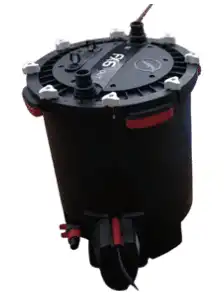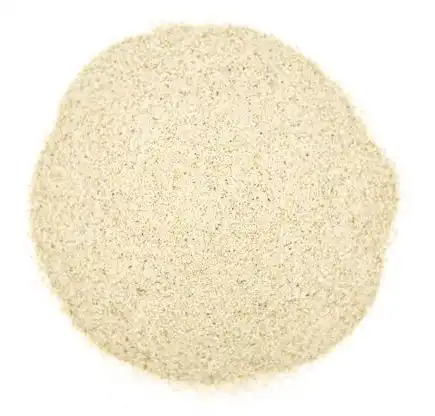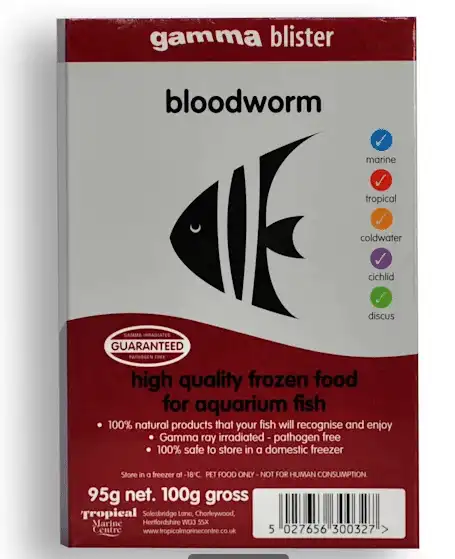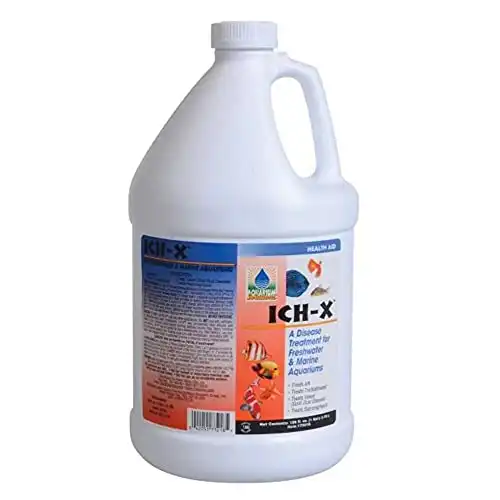Thank you for visiting! By the way… any links on this page that lead to products on Amazon and other stores/partners are affiliate links Aquarium Store Depot earns a commission if you make a purchase.
Are you ready to take on the challenge of caring for a Jack Dempsey fish? These brightly colored creatures have become popular amongst aquarists looking for some color in their aquariums. Although they can be difficult, with proper care and knowledge, these hardy fish will thrive!
In this guide, we’ll go over all there is to know about taking care of your own Jack Dempsey. We’ll cover everything from where they come from and how they look, right through what tank mates work best with them as well as potential health issues that may arise, so get prepared to create an environment perfect for keeping happy aquatic pets!
Key Takeaways
- Jack Dempsey fish are an exciting species to care for and can live up to 10-15 years in captivity.
- Provide them with a big enough tank (recommended 80 gallons) & create a comfortable environment with hiding spots, plants, etc.
- Feed your Jack Dempsey Cichlid a variety of foods 2–3 times/day & carefully select compatible tank mates while avoiding small or aggressive fish.
Species Overview
| Scientific Name | Rocio octofasciata |
| Common Names | Jack Dempsey Fish, Jack Dempsey Cichlid |
| Family | Cichlidae |
| Origin | Central America |
| Diet | Omnivorous |
| Care Difficulty | Intermediate |
| Activity | Active |
| Life Expectancy | 10 – 15 years |
| Temperament | Aggressive |
| Tank Level | All levels |
| Minimum Tank Size | 55 gallons (208 liters) – recommended 75-80 gallons (284 liters) |
| Water Temperature Range | 72-86°F (22-30°C) |
| Water Hardness | 9-20 dKH |
| pH Range | 6.5 – 8.0 |
| Filtration/Water Flow | Moderate |
| Water Type | Freshwater |
| Breeding | Egg layers |
| Difficulty to Breed | Moderate |
| Compatibility | Aggressive – should only be kept with other fish that can defend themselves. |
| OK, for Planted Tanks? | Yes – but will dig up plants |
Introduction
Jack Dempsey fish, also scientifically known as Rocio octofasciata, are native to the slow-moving freshwater rivers of southern Mexico. They can be easily recognized for their attractive scales and stunning colors that make them a prized pet in aquariums all over the world. Due to their aggressive behavior, they require an experienced aquarist who is knowledgeable about other cichlids in order to provide optimal care for these unique species of freshwater fish.
Let’s get started on this journey to understanding how best we can take care of your Jack Dempsey Cichlids!
Origins And History
Jack Dempseys have captivated aquarium owners for years with their size and color along with their lively personality. Found in slow-moving freshwater rivers featuring a mixture of mud, sand or even old leaves. These fish feed on insects, worms, crustaceans, and small fish.
The name of the fish originated from the famous heavyweight boxer named Jack Dempsey. The fish was given this name due to its aggressive nature and the boxer’s demeanor in the ring.
Appearance
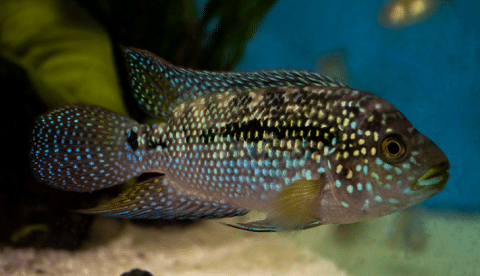
The Jack Dempsey is a colorful fish with an oval-shaped cichlid with large fins and a tail. Often displaying colors of gray/brown to red/brown, some may even have specks of green or purple as well. Alongside their unique hues, the shimmering blue-green spots just add more character when you look at them closely. Its distinct head is another detail that stands out from other species in the oceanic family.
The fish described above isn’t the only variant available to us hobbyists. In fact, there is a naturally occurring recessive blue gene morph called the Electric Blue Jack Dempsey. It is available now with an incredible light blue hue plus extended fins. This unique variation makes them coveted additions to any tank regardless. These electric blues are cherished items among enthusiasts currently searching for them regularly!
Lifespan
Jack Dempsey fish can live a long life in captivity if provided with the right conditions. Good care, including keeping their environment clean, providing them with balanced nutrition, and ensuring they have enough space, is essential for increasing their lifespans which typically range from 10 to 15 years. Neglecting any of these aspects could reduce this time significantly.
Average Size
Male Jack Dempsey fish can reach up to 10 inches long, while their female counterparts max out at 8. To make sure these gorgeous aquatic creatures achieve the size they’re capable of attaining, a large enough tank is imperative. Keeping these fish in a small aquarium will result in extreme aggression due to their territorial nature. Keep them in a large tank to start so they don’t become stressed and aggressive. As we know from our prior articles, stress will lead to a shorter lifespan.
Essential Tank Requirements
In order to properly care for your Jack Dempsey Cichlid, we need to offer the correct tank size, consider water parameters, and establish an apt habitat. Since these fish can be quite territorial, providing enough space as well as places to hide can help reduce aggression levels caused by stress.
Recreating their natural environment in our tanks should also not be overlooked when trying to give our Dempseys what they need. This will aid with reducing tension while improving overall health conditions too!
So now let’s break down exactly how much room we have to provide – that being said, it’s important to take note of where their native terrain lies so that conditions may mimic theirs closely!
Tank Size
When creating a Jack Dempsey Fish Tank, it is recommended to have at minimum 55 gallons of space. For the best habitat conditions and an optimal environment for these large fish, having 80 or more gallons should be considered. Bigger is better in this case. This provides ample room so that your Dempseys can swim freely as well as define their own territory within the tank when there are multiple occupants present.
Water Parameters And Conditions
Jack Dempsey fish, while very hardy, are also prone to stress due to their environment. Aside from the proper tank size, we can keep stress to a minimum with proper water parameters and keeping them consistent. The ideal temperature range should stay between 72-86 degrees Fahrenheit with a pH of 6-8. Water hardness should not exceed 20 dGH, but ideally ranges between 9-20dGH for optimal results.
To ensure good quality of the aquarium’s contents, have an effective filtration system in place, such as a canister filter or hang on back power filter. A filter for a large fish like this needs lots of water flow. Most power filters will not have the right amount of flow or either oversize, get more than one, or opt to upgrade to a canister filter. This will help maintain water purity while providing oxygen levels necessary for the survival of the fish within your tank.
High flow, large filtration capacity, and quality plumbing - The FX series is designed for monster fish keepers
Regularly check all readings like ammonia nitrite & nitrate alongside maintaining consistent temperatures throughout different times during day/night intervals whilst also keeping track of any worrying signs displayed by the Jack Dempseys themselves (to rule out illnesses). Here are some basic parameters to strive for:
As part of preserving its well being, periodic partial changes become imperative. You will make water changes based on your water parameters. For example, if you test your water, and your water has high nitrites or nitrates above the parameters mentioned, then do a water change. When you do a water change, ensure your tap water is dechlorinated and near the same temperature as your display tank so that you do not shock your fish.
Tank Decor
Creating a healthy atmosphere for your Jack Dempsey fish is essential. Adding decorations like caves, driftwood, and plants, as well as floating vegetation to provide shade, will make them feel right at home while replicating their natural habitat. Keep in mind that these fish are known for digging out plants and decorations. Make sure you easier keep large rocks or do not get too attached to their placements, as your fish will happily redecorate for you.
They prefer low light environments with sandy substrates they can dig in. However, they will adjust to virtually any environment with time.
Natural sand is excellent for bottom feeder fish to forage around in.
Feeding
Jack Dempsey plays Jack Dempsey. Fish are carnivorous, so it is necessary to provide them with a sufficient quantity of animal proteins for their well being. To ensure they have all the nutrients required to remain in top condition, offering your fish a selection of different high-protein dishes on its menu is essential. A balanced and varied diet provides these Dempsey fish with everything they need nutritionally speaking.
Suggest Food Types And Frequency
In order to maintain a healthy environment for your Jack Dempsey Fish, it is important to feed them with the correct food types. Offer them a mix of prepared frozen foods and live or fresh ones, such as small fish, worms, bloodworms, insects, and crustaceans. Fry should be fed infusoria for 48 hours before transitioning over to baby brine shrimp or micro worms.
Frozen bloods are a great source of protein and a fish source fish naturally respond to. Very filling and works for just about any fish
The frequency of feeding depends on size. Juvenile Dempseys should have 2-3 meals per day while adults can get away with 1-2 times daily. Make sure not to overfeed, though, because this could cause issues both health wise and also in terms of water quality! Finally, remember that removing leftover food helps keep an optimal living situation in their tank, so don’t forget about cleanliness either!
Behavior And Social Dynamics
Jack Dempsey fish are notorious for their combative and territorial natures. They can be very feisty, often chasing after or aggressively biting other smaller aquatic creatures in the tank. This type of conduct necessitates experienced aquarists who know how to control the dynamics inside a tank and make it safe for all marine life living there.
Due to this aggressive behavior pattern exhibited by Jack Dempseys, they must have plenty of room with many hiding spots inside the aquarium so as to reduce stress levels on them while avoiding any harm done to others present in that environment also. Understanding how these types of fish act is essential for an orderly habitat where everyone lives peacefully together.
Tank Mate Selection
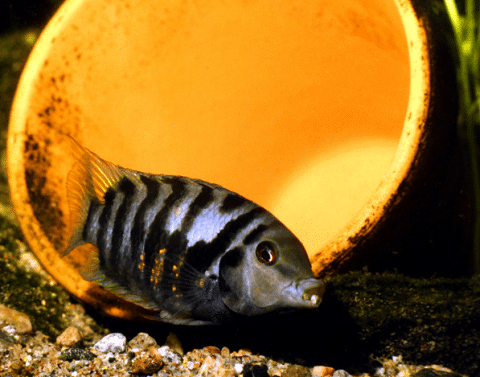
For Jack Dempsey fish to thrive in an aquarium, selecting the correct tank mates is essential due to their usually aggressive temperament. It’s best for these cichlids if they have companions of similar size and demeanor, so a peaceful ecosystem can be maintained with minimal conflict. Some examples of compatible friends include:
- Convict Cichlids
- Firemouth Cichlids
- Green Terrors
- Severum Cichlid
- Silver Dollars
- Large Plecos
It’s advised that more research should be done on each potential addition before deciding whether or not it will fit into the existing environment around this species of dempsey fish. For instance, Giant Danios along with firemouth cilchilds and green terror variations are all great choices as jack Dempsey tank mates – Care needs to remain consistent when observing interactions between them all within the same space over time.
Bad Tank Mates
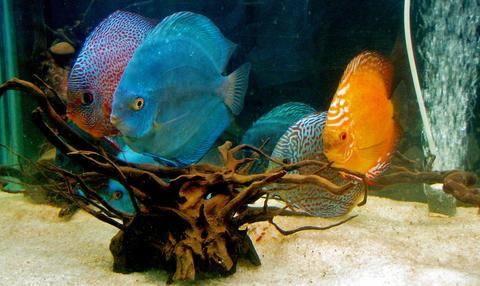
When it comes to tank mates for a Jack Dempsey fish, small or timid species and slow-moving ones such as shrimp and snails are best avoided. These animals may become food sources for your Jack Dempsey.
Avoid small fish such as:
- Small schooling fish like Rasboras
- Large passive fish like Discus fish
- Any fish that can fit into the mouth of your full-grown Jack Demsey Cichlid
Also, very combative fish, such as:
- Wolf Cichlids
- Alligators Gars
Breeding Process
When Jack Dempsey fish are ready to mate, they will show darker coloring and become increasingly aggressive as a breeding pair. In order to ensure the safety of these dempsey fish and any other inhabitants in the tank, it is wise for them to be removed or separated during this process. Their strong bonds mean that multiple spawns can occur when raising Jack Dempseys, which makes successful breeding relatively easy. It’s critical that all occupants remain safe throughout, so separating them from each other is vital part of their development procedure. I supplied a video from Aidans Aquatics to help illustrate.
Raising Fry
Once the eggs of Jack Dempsey have hatched, it is essential to take proper care and provide them with good nutrition for their survival and growth. Begin by offering infusoria as food during the first two days followed up with brine shrimp or microworms from day three onwards. Feed fry thrice daily while monitoring progress regularly.
When they are free swimming it’s best practice to keep parents away in order to avoid any potential harm or injury coming towards small ones. All these factors work together: high quality water & appropriate nutrients being fed accordingly help you raise healthy exquisite little dolphins that would turn into lovely adult specimens!
Preventing And Treating Common Health Issues
Jack Dempsey fish are vulnerable to common health issues like Ich and Head and Lateral Line Erosion (HLLE). To protect these creatures, one must make sure water is of proper quality, the diet balanced, and new tank additions are quarantined first as a best practice.
In case your Jack Dempsey experiences a disease such as Ich, it’s important you take action immediately. The process goes this way: transfer infected specimens into another aquarium with identical conditions, gradually increasing temperature by two degrees in order to speed up the life cycle of protozoa parasites. Then use medications like Ich-X, which kill them off so that your little friend can recover back again soon after.
Ich-X is the best all around medication when it comes to treating Ich
Frequently Asked Questions
How big of a tank does a Jack Dempsey need?
For Jack Dempseys, the minimum tank size must be 80 gallons for one fish and an extra 55 gallons per each additional fish. To host a pair of these species properly in their habitat, at least 100 gallon capacity is recommended. When considering bigger aquariums for larger fish, it would always be better to err on the side of caution.
Can a Jack Dempsey and Oscar live together?
It is possible for Jack Dempseys and Oscars to inhabit the same tank if there are multiple fish in it, with ample room. This combination of species can get along as long as Jack Dempsey is big enough so that it won’t be bullied or eaten. Since these types of fish have a territorial nature, they will protect their own space while Oscars tend to stay placid which means they aren’t likely going to challenge the dominance of a larger Jack Dempsey.
To ensure peaceful cohabitation between both species, make sure you’re providing them with an adequately sized environment where everyone can find respite from each other when needed!
What do Jack Dempsey fish like to eat?
Jack Dempseys, or Dempsey Fish as they are sometimes known, have a carnivorous diet and love live food such as earthworms, brine shrimp or bloodworms. To these treats frozen foods like krill, fish filets and prawns also make excellent meals for them.
How can I prevent common health issues in my Jack Dempsey fish?
It is essential to maintain good health for your Jack Dempsey or dempsey fish by consistently carrying out water changes, providing a nutritious diet and keeping any new additions separate in quarantine. This helps keep the fish healthy and contented.
Caring properly for this species involves paying attention to their needs, which includes ensuring they have plenty of access to clean water, being fed an appropriate meal plan as well as isolating all newcomers until they acclimated to the tank’s environment.
Are there any fish that should be avoided as tank mates for Jack Dempsey fish?
It is recommended that Jack Dempsey fish be kept away from shy, slow-moving species such as shrimp and snails since these can quickly become prey to the territorial dempsey fish. It’s best not to house aggressive or timid creatures in the same tank with them.
Closing Thoughts
This guide provides you with all the essential information needed to successfully keep and care for Jack Dempsey fish. From their fascinating history, eye-catching look, and precise tank requirements and feeding habits – right through to appropriate tank mates, breeding details, and health issues. We have everything here that will help in providing a healthy home environment for your dempsey fish.
These colorful yet feisty creatures need experienced aquarists who understand how to deal with their aggressive behavior when it comes to maintenance or caring needs.
Have you kept this fishing in the past? If so, let us know in the comments. We love to hear back from our readers. Let’s start a conversation with a comment below. Thanks for reading, and see you next time.
- About the Author
- Latest Posts
I’m thrilled that you found Aquarium Store Depot! Here you’ll find information on fish, aquariums, and all things aquatics related. I’m a hobbyist (being doing this since I was 11) and here to help other hobbyists thrive with their aquariums! I adhere to a high quality Editorial Process and Review products with real life field usage and practical analysis.


